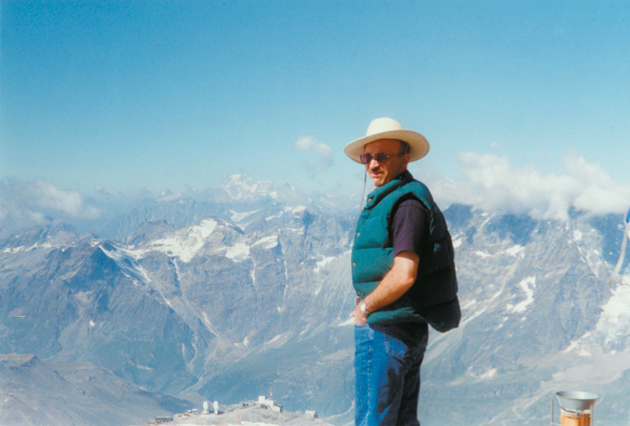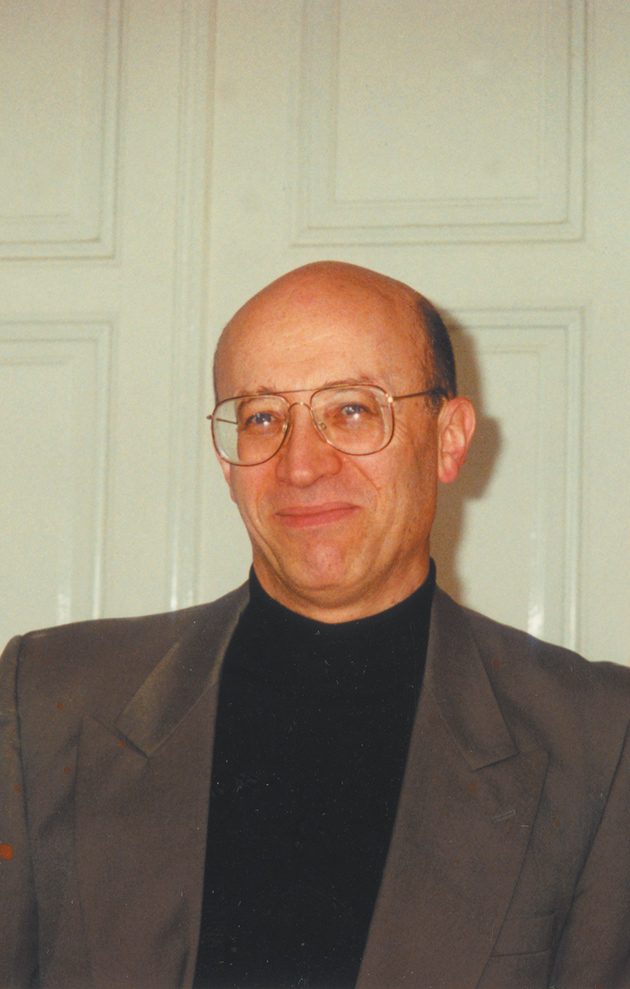The title of The Memory Chalet refers to its method of composition. Locked inside a body made inert by amyotrophic lateral sclerosis, and faced with his shrinking future and approaching death, Tony Judt decided to revisit his past. Physically unable to write, but with a mind as sharp and active as ever, he plotted the twenty-five short essays that compose this book in his head, while he was alone at night, using a mnemonic device taken from accounts of the early modern “memory palace,” whereby elements of a narrative are associated with points in a visually remembered space; but instead of a palace, he used a small Swiss chalet that he had once stayed in on vacation as a boy, and that he could picture vividly and in detail. He was then able to dictate these feuilletons the next day from the resulting structure. All but four of them were originally published as separate pieces in The New York Review, but their impact is much enhanced as a single book, a book that is at once memoir, self-portrait, and credo.
Judt says that ALS is in both senses an incommunicable disease, yet his articulacy in describing the condition almost makes you think you can understand what it is like to be helpless in this way:
Having no use of my arms, I cannot scratch an itch, adjust my spectacles, remove food particles from my teeth, or anything else that—as a moment’s reflection will confirm—we all do dozens of times a day.
It is not as though you lose the desire to stretch, to bend, to stand or lie or run or even exercise. But when the urge comes over you there is nothing—nothing—that you can do except seek some tiny substitute or else find a way to suppress the thought and the accompanying muscle memory.
Ask yourself how often you move in the night. I don’t mean change location altogether…merely how often you shift a hand, a foot; how frequently you scratch assorted body parts before dropping off; how unselfconsciously you alter position very slightly to find the most comfortable one. Imagine for a moment that you had been obliged instead to lie absolutely motionless on your back…for seven unbroken hours and constrained to come up with ways to render this Calvary tolerable not just for one night but for the rest of your life.
But he believes that the deeper experience of isolation and imprisonment cannot be conveyed; he feels as out of reach of the imagination of others as Kafka’s Gregor Samsa.
The articulate recreation of the active life that he has lost is Judt’s answer to his imprisonment and impending death, and it gives him a more personal posthumous existence than do his historical and critical writings, important as they are. These eloquent personal recollections are infused with historical consciousness, but they also explain and reflect the strong opinions and attitudes that marked Tony Judt as a distinctive presence among us, unforgettable to those who knew or read him. Wary of group identity, he was an Englishman but exceptionally cosmopolitan, a Jew who became an outspoken critic of Zionism, and an egalitarian social democrat who was also an elitist and a defender of meritocracy.
Judt was born in London in 1948, to secular Jewish parents with roots in Eastern Europe, and he experienced both the austerity of postwar Britain and the extraordinary social mobility and social transformation that followed it. He remained throughout his life a grateful beneficiary of the welfare state and of its educational largesse. He also loved public transport, and is lyrical in the description of the trains, buses, and ferries of his youth, which have declined sadly since:
I would park my bike in the luggage wagon at Norbiton Station on the Waterloo line, ride the suburban electric train out into rural Hampshire, descend at some little country halt on the slopes of the Downs, cycle leisurely eastward until I reached the westerly edge of the old London to Brighton Railway, then hop the local into Victoria as far as Clapham Junction. There I had the luxuriant choice of some nineteen platforms—this was, after all, the largest rail junction in the world—and would entertain myself with the choices from which to select my train back home. The whole exercise would last a long summer day.
Judt expresses affection for the material world in which he grew up, but words, ideas, and human institutions are the real substance of his life. He was one of those clever lower-middle-class boys who benefited from the opening up of British education after World War II. He went to a selective independent “direct grant” school that was funded by the local municipal authority and open without fee to those who did well on the eleven-plus exams. Judt says he hated school and remembers with respect only one of the masters, a ferocious teacher of German who instilled high standards through fear of his scorn. But he must have learned other things there, because he did so well on the entrance exams for King’s College, Cambridge, that he was admitted without having to take the school-leaving exams (A levels); in consequence, he quit school halfway through his final year.
Advertisement
King’s when he went there in 1966 was “the very incarnation of meritocratic postwar Britain,” an ancient establishment with beautiful buildings and a distinguished tradition, now filled with students from selective state schools who had done well on exams, and who were invited to take on the inherited self-confidence that permeated the institution. Within a few years the formality, the gowns, the gate hours had been done away with, but while Judt was there he had the sense of membership in an elite, not of descent but of merit:
Promoted on merit into a class and culture that were on their way out, we experienced Oxbridge just before the fall—for which I confess that my own generation, since risen to power and office, is largely responsible.
One of Judt’s fundamentals is an unapologetic belief in the importance of recognizing the distinction between excellence and mediocrity, and making it count. He is pitiless about the intellectual and cultural egalitarianism and anti-elitism that have made such progress in English education since his day:
For forty years, British education has been subjected to a catastrophic sequence of “reforms” aimed at curbing its elitist inheritance and institutionalizing “equality.” …The worst damage has been at the secondary level. Intent upon destroying the selective state schools that afforded my generation a first-rate education at public expense, politicians have foisted upon the state sector a system of enforced downward uniformity….
Today, when the British government mandates that 50 percent of high school graduates should attend university, the gap separating the quality of education received by the privately schooled minority from that of everyone else is greater than at any time since the 1940s.
Although he is politically on the left, and a believer in reducing social and economic inequality, he has no sympathy for the notionally equalizing forces of multiculturalism and political correctness. Becoming an American academic, he found much to deplore:
Undergraduates today can select from a swathe of identity studies: “gender studies,” “women’s studies,” “Asian-Pacific-American studies,” and dozens of others. The shortcoming of all these para-academic programs is not that they concentrate on a given ethnic or geographical minority; it is that they encourage members of that minority to study themselves—thereby simultaneously negating the goals of a liberal education and reinforcing the sectarian and ghetto mentalities they purport to undermine.
He is likewise dismissive of the taboos on sexual expression and sexual relations that have closed in since the sexual liberation of his youth:
Since the 1970s, Americans assiduously avoid anything that might smack of harassment, even at the risk of forgoing promising friendships and the joys of flirtation. Like men of an earlier decade—though for very different reasons—they are preternaturally wary of missteps. I find this depressing. The Puritans had a sound theological basis for restricting their desires and those of others. But today’s conformists have no such story to tell.
Because of these views some of his academic colleagues regarded Judt as a “reactionary dinosaur.” That doesn’t bother him, but at one point he suggests that there may be some incoherence in being politically on the left yet a defender of the elitism of universities:
In my generation we thought of ourselves as both radical and members of an elite. If this sounds incoherent, it is the incoherence of a certain liberal descent that we intuitively imbibed over the course of our college years. It is the incoherence of the patrician Keynes establishing the Royal Ballet and the Arts Council for the greater good of everyone, but ensuring that they were run by the cognoscenti. It is the incoherence of meritocracy: giving everyone a chance and then privileging the talented. It was the incoherence of my King’s and I was fortunate to have experienced it.
I suppose this is irony; but it is worth spelling out that there is no incoherence in wanting to reduce economic stratification while preserving educational selection based on ability. That is just the common sense of the old left, which recognizes that not all kinds of inequality are the same, and that it will not help the poor to level the educational system. Judt was the kind of old-fashioned, academically conservative leftist who could make distinctions—now an endangered species.
He was also old-fashioned in his commitment to social democracy, his distrust of market capitalism and the privatization of essential public services, and his belief that a decent society should prevent the large inequalities of wealth that market economies tend to generate. He even goes so far as to liken the broad current acceptance of market orthodoxy to the earlier abasement of European intellectuals before the historical inevitability of communism. That, I think, is rhetorical overkill; while ideological dogmatism is plentiful, there is much more honest uncertainty and debate, both empirical and moral, about how governments can best harness the evident innovative and productive power of capitalism in the service of the common good.
Advertisement
The most complex feelings expressed in this memoir are about the Jews, Jewishness, and Israel. There was no religious observance in Judt’s immediate family, and they always had a Christmas tree. He was one of only about ten Jews in his school, out of more than a thousand pupils. But he must have inherited a very strong sense of Jewish identity, because from the age of fifteen he was deeply engaged with left-wing Zionism, as an official of one of its youth movements, and he spent three summers working on Israeli kibbutzim, plus six months just before starting at Cambridge. He was a true believer:
I idealized Jewish distinction, and intuitively grasped and reproduced the Zionist emphasis upon separation and ethnic difference….
The essence of Labour Zionism, still faithful in those years to its founding dogmas, lay in the promise of Jewish work: the idea that young Jews from the diaspora would be rescued from their effete, assimilated lives and transported to remote collective settlements in rural Palestine—there to create (and, as the ideology had it, recreate) a living Jewish peasantry, neither exploited nor exploiting.
In the end, he says, he became disaffected for two reasons. The first was the appalled reaction of his fellow kibbutzniks to his intention to take up a place at Cambridge instead of settling permanently in Israel. The second was what he saw during auxiliary participation in the Israeli armed forces, on the Golan Heights just after the Six-Day War. He was shocked by the attitude of young Israelis toward the recently defeated Arabs. “The insouciance with which they anticipated their future occupation and domination of Arab lands terrified me even then.” The experience inoculated him against many forms of seductive commitment:
I knew what it meant to be a “believer”—but I also knew what sort of price one pays for such intensity of identification and unquestioning allegiance. Before even turning twenty I had become, been, and ceased to be a Zionist, a Marxist, and a communitarian settler….
Unlike most of my Cambridge contemporaries, I was thus immune to the enthusiasms and seductions of the New Left, much less its radical spin-offs: Maoism, gauchisme, tiers-mondisme, etc. For the same reasons I was decidedly uninspired by student-centered dogmas of anticapitalist transformation, much less the siren calls of femino-Marxism or sexual politics in general. I was—and remain—suspicious of identity politics in all forms, Jewish above all.
But Jewishness is an indelible identity, and Judt struggles over what it means to him. He says he is not a “lapsed” Jew, but he is certainly a lapsed Zionist: his most provocative publication was an essay in these pages advocating the end of the Israeli Law of Return and hoping for the eventual formation of a binational Jewish-Arab state in greater Palestine—a deliberately utopian fantasy that takes his rejection of identity politics to its limit.
Yet Judt emphatically thinks of himself as a Jew, so he must ask, “what can it mean—following the decline of faith, the abatement of persecution, and the fragmentation of community—to insist upon one’s Jewishness?” His uncomfortable answer involves memory, and all the awkwardness of secular Jewish identity appears in his remarks about the Holocaust:
In this sense, American Jews are instinctively correct to indulge their Holocaust obsession: it provides reference, liturgy, example, and moral instruction—as well as historical proximity. And yet they are making a terrible mistake: they have confused a means of remembering with a reason to do so. Are we really Jews for no better reason than that Hitler sought to exterminate our grandparents?
I am afraid that I am one of those secular Jews who regards that and the larger history of anti-Semitism as a sufficient reason, without which the other alleged nonreligious reasons would not carry much weight. Judt appeals to an intellectual tradition:
Judaism for me is a sensibility of collective self-questioning and uncomfortable truth-telling: the dafka-like [contrarian] quality of awkwardness and dissent for which we were once known. It is not enough to stand at a tangent to other peoples’ conventions; we should also be the most unforgiving critics of our own. I feel a debt of responsibility to this past. It is why I am Jewish.
Yet I doubt that this would be enough without the horrible need to identify with the victims of Hitler, to which Judt is not immune. The chapter in which his reflections on Judaism occur is entitled “Toni,” and at the end he tells us that Toni Avegael was a female cousin of his father’s who was gassed at Auschwitz, and after whom he is named.
It is natural to react to persecution not only by defense but by a heightened pride in the traditions and characteristics of the persecuted group. In spite of his universalist convictions, this mechanism is at work in Judt’s feelings, even though he condemns the “uncompromising Israelophilia” and “lachrymose self-regard” that is often associated with commemoration of the Holocaust in the United States.
But Judt’s dominant identification is with the values of Western liberalism in its social democratic form. He is rueful about the failure of Western radicals of his generation to recognize that the real revolution in 1968 was taking place in Prague and Warsaw, though it would culminate only twenty years later. He taught himself Czech and became a historian not just of modern France, as he had begun, but of the whole of Europe. He loved New York because so much of the world converges here. I was a friend of Tony Judt, and we spoke during his final illness about death, and the importance to someone’s life of the things he does that reach beyond it and what remains of him after he is gone. The magnificent and defiant gesture of writing this book in these circumstances is the fitting legacy of an extraordinary man who wanted us to know who he was.
This Issue
February 10, 2011




